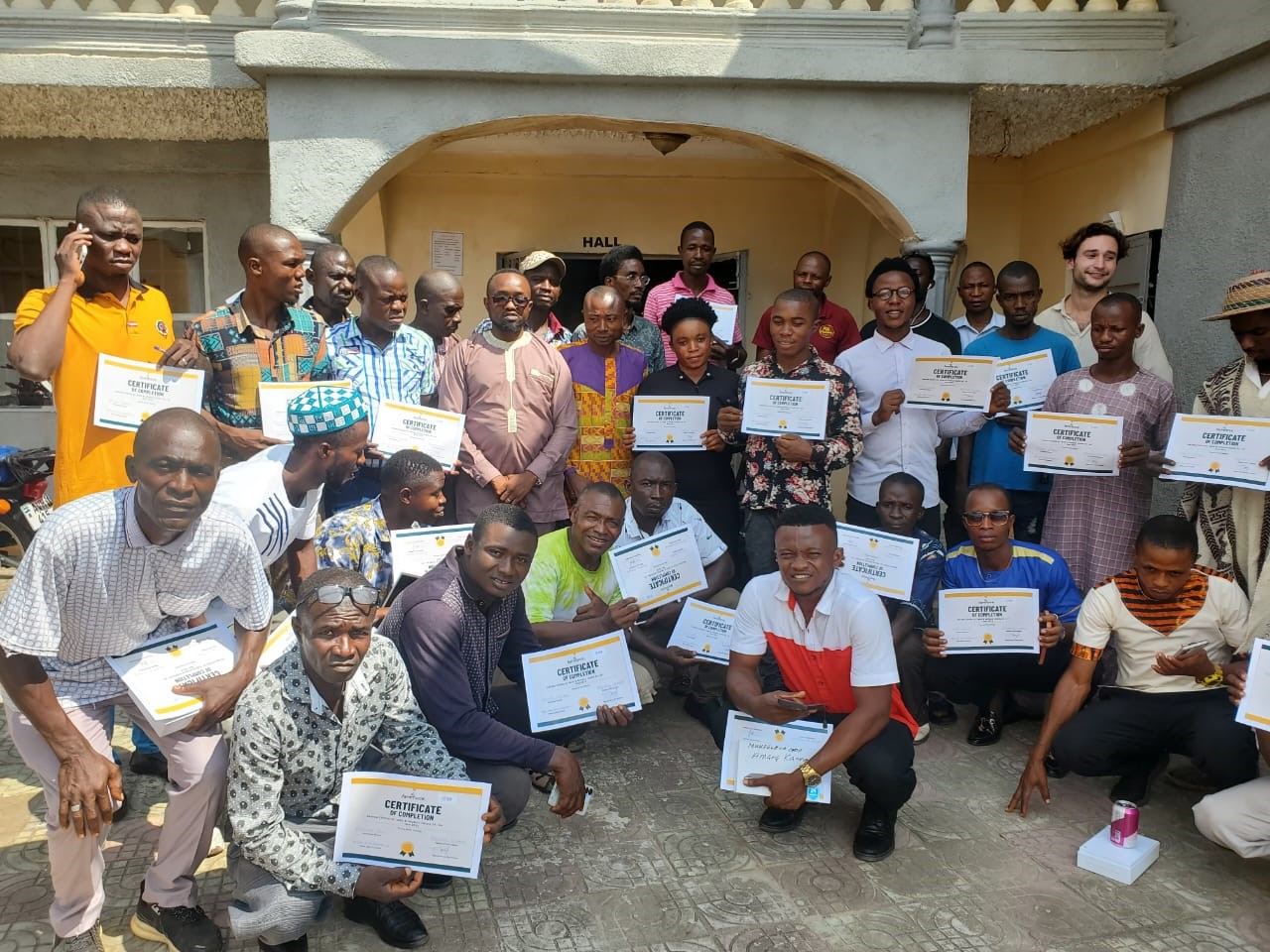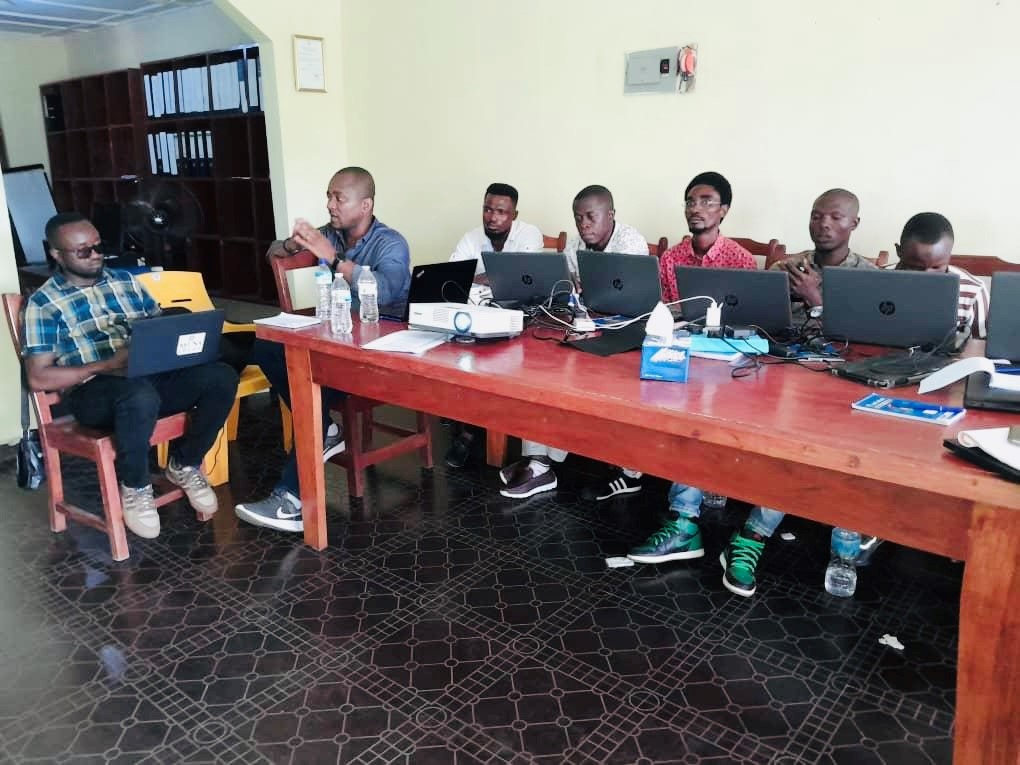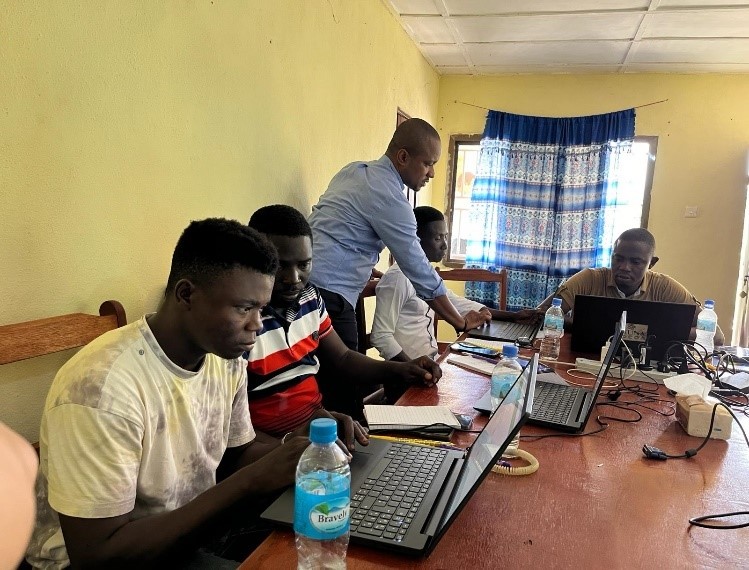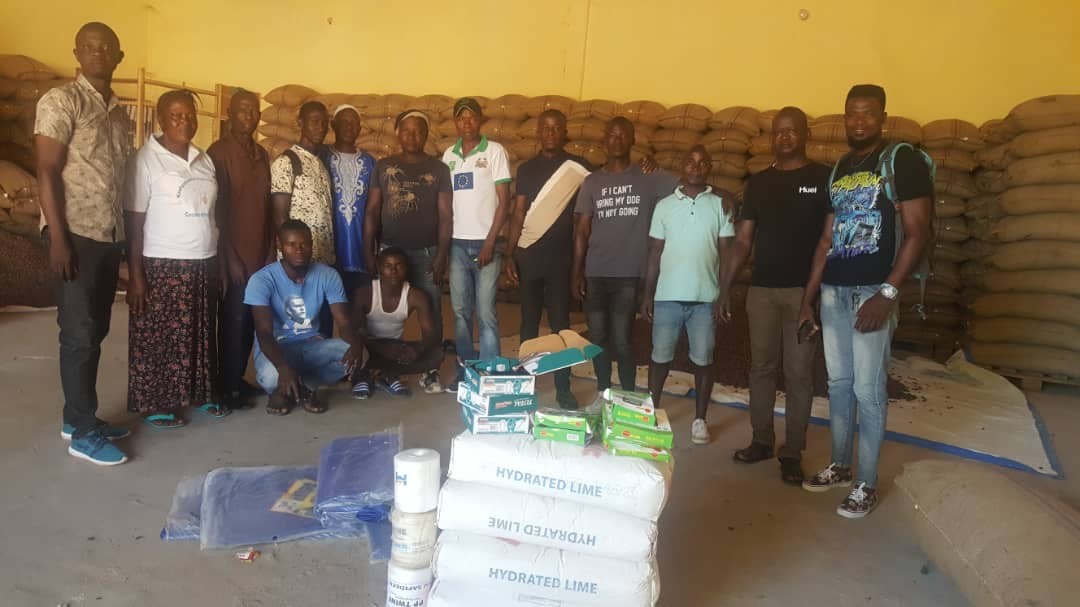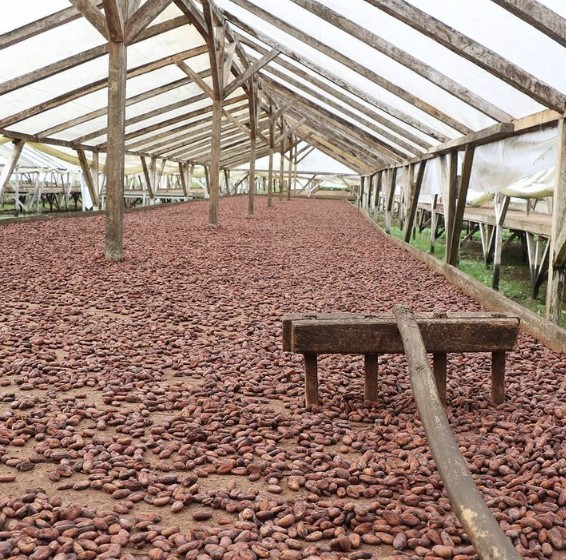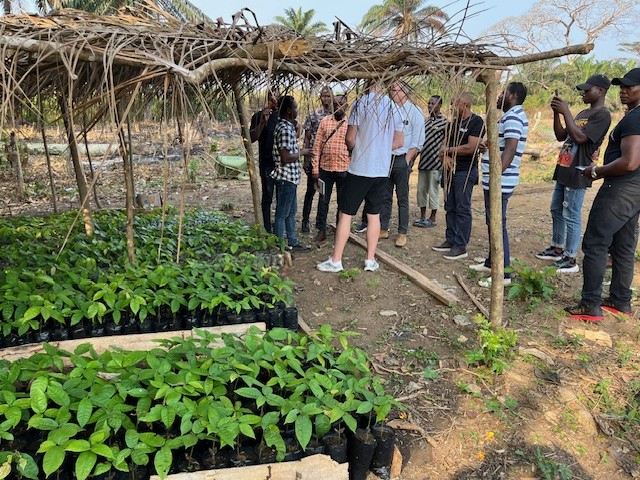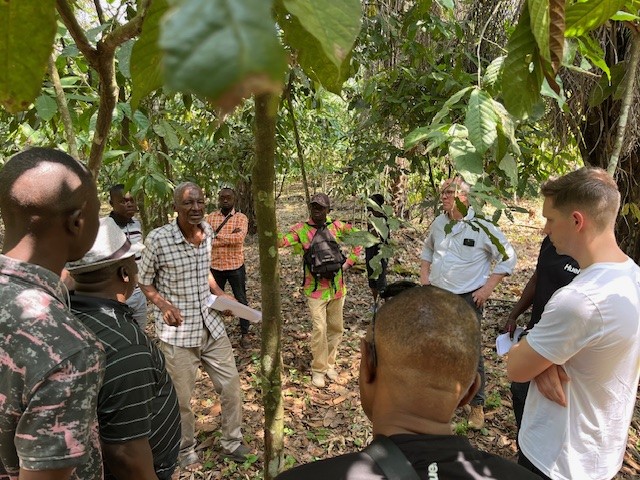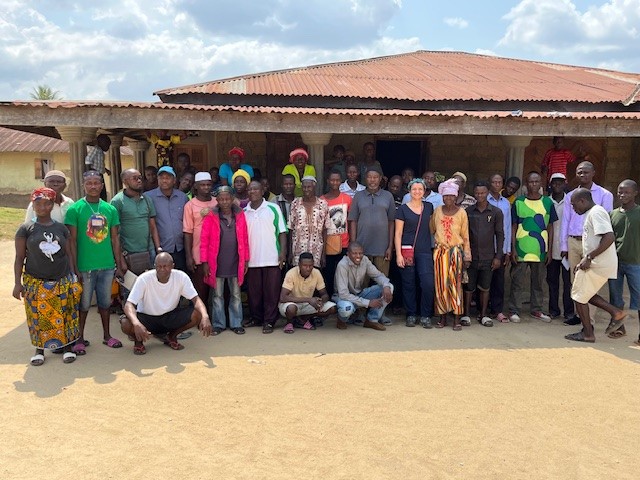Project TRUST: Shaping a Transparent and Resilient Cocoa Sector
What is the main objective of the project?
Project TRUST explicitly targets most of the Cocoa Platform’s Roadmap 2030 priority areas, including living income, transparency and traceability, a deforestation-free and climate-friendly cocoa supply chain, and innovation. It aims to address key challenges facing the cocoa sector and cocoa farmers in Sierra Leone, such as low productivity due to ageing plantations, poor farm management, and pests and diseases.
It also tackles the lack of transparency, including unregulated pricing systems, the absence of partnerships in commercial dealings, and a lack of transparency in premium management. Additionally, the project addresses the threat to natural capital, with Sierra Leone’s forest cover having decreased by 37%, from 46 million to 29 million hectares over the last three decades.
The project is coordinated by Cocoasource and its local subsidiary, Akuna Cocoa, with implementation carried out in collaboration with cocoa cooperatives, local implementers, and NGOs.
How will the project contribute to sustainable cocoa production?
Project TRUST will contribute to sustainable cocoa production through key initiatives, such as establishing a living income for farmers by setting a Living Income Reference Price for Sierra Leone and connecting farmers with buyers looking to establish long-term buying relationships. It will promote deforestation-free and climate-friendly cocoa production by identifying conservation areas and encouraging climate-smart farming, supported by a Payment for Environmental Services (PES) system. Additionally, the project will ensure supply chain transparency and traceability through farm mapping and digital management systems, which are vital for fair income distribution.
What steps are taken during the project?
Project TRUST is guided by the principles of farmer and cooperative empowerment. It emphasises innovation and partnership, selecting implementation partners based on their agricultural and technical expertise to develop activities around four key pillars.
These include (1) resilient farmers, focusing on improving cocoa farm productivity, diversifying farmers' revenue streams, and enhancing food security; (2) thriving cooperatives, by strengthening their managerial, financial, and governance capacities; (3) supply chain transparency, through the establishment of a fully traceable supply chain and a deeper understanding of the social development and environmental impacts at the farming base; and (4) forest conservation and regeneration, with a forest risk assessment conducted at the sourcing landscape and the design and launch of a Payment for Environmental Services (PES) system.
What is innovative about this project?
First, Living Income – Cocoasource has partnered with the International Finance Corporation (IFC) to define, for the first time, the Living Income Benchmark and Living Income Reference Price for the cocoa-growing areas in Sierra Leone, and to develop policy recommendations. The study is being conducted by the Royal Tropical Institute, NL (KIT).
Second, Cooperative empowerment – the project will explore how cooperatives can be more fully integrated within the value chain.
Third, Studying the feasibility and designing a Payment for Environmental Services (PES) system – in partnership with a leading agroforestry implementer, we will work with cooperatives and farmers to structure an incentive programme aimed at maintaining and increasing biodiversity and above-ground biomass on their farms.

''Considering the increasing stakes in the cocoa sector of Sierra Leone, and the upcoming regulations around sustainability - digitising cocoa farms is a first step Project TRUST has implemented to foster supply chain transparency to better the living conditions of producers. The Project will also have an important focus on protection and conservation practices for the environment. It is hoped that Project TRUST will yield good dividends in the areas of traceability, production, accurate farmer database and an independent operations of partner cooperatives in the sector.''
How does the project contribute to improving the (economic) situation of girls and women?
The project supports partner cooperatives in obtaining Rainforest Alliance (RA) certification. RA standards promote gender inclusion by ensuring women have equal access to resources, training, decision-making, fair pay, and safer working conditions, which leads to increased female participation in cocoa production. Additionally, the project promotes income diversification by encouraging the cultivation of food crops alongside cocoa. As women are often responsible for household food security, this helps them generate additional income for themselves and their families.
How do you plan to ensure the scalability of the sustainable innovations implemented in the cocoa value chain?
Once the Living Income Reference Price (LIRP) is established, Cocoasource will use its network to connect chocolate makers with cocoa producers in Sierra Leone, ensuring that farmers receive living income prices. Cocoasource will draw on its extensive experience with Living Income through its work with Tony’s Chocolonely in Ivory Coast and Ghana, where thousands of farmers have benefited.
The use of digital tools for geo-referencing farms, traceability systems, and supply chain transparency ensures scalability by allowing us to monitor and improve efficiency in real time. Importantly, the data and licenses for these tools will be held by the cooperatives themselves.
Organisations involved





